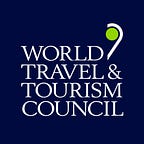Responsible wildlife tourism: a force for good to protect elephants in destinations worldwide.
Today marks #WorldElephantDay — an opportunity to celebrate these majestic creatures and a day that brings the world together to help protect elephants, wildlife and their habitat.
Most importantly, a chance to help raise awareness of responsible and ethical practices in wildlife tourism and the gained benefits for conservation and local communities.
Across the globe, elephants are facing threats from poaching, human-wildlife conflict and habitat destruction. In Africa alone, an estimated 100 African elephants are killed each day by poachers seeking ivory, meat and body parts, leaving a staggering number of only 400,000 remaining elephants.
Back in 2018, our research on the ‘Economic Impact of Global Wildlife Tourism’ provided an estimation of the global economic contribution of Wildlife Tourism. The study found that wildlife tourism is five times bigger than poaching; this means that a strong incentive for communities to protect and display animals to the world rather than killing them for a one-off cash bonus is the way forward. In other words, wildlife is far more worth alive than dead.
The campaign to replace poaching with wildlife tourism has been going for some time. Tourism plays a key and enormous role in persuading local people that there is a future in community-led conservation.
When managed ethically and responsibly, wildlife tourism can — and do — provide genuine support to endangered species. When tourists spend money to see wild animals, it gives those species an economic value in the eyes of local communities that in turn provides a financial incentive to help protect wildlife.
But how else can tourism help protect elephants?
As travellers, our actions and tourism behaviour can make a difference too. Acknowledging we should be more responsible, however, is only part of it. Learning what this means, and putting it into practice, is vital.
When travelling, it’s essential to educate yourself about your destination, its natural history, and its wildlife, all in the context of sustainability. So when planning your next travel, please remember to book with a tour operator who holds a responsible tourism charter or policy. And take care to ensure that your actions do not negatively impact the destination and its wildlife heritage.
Travel safely and responsibly so that animals and local communities may, too, benefit from your trip. It is only through conscious actions, and by sharing knowledge and best practices with others, that we can create and embrace a sector guided by principles that protect the world’s most vulnerable species.
To support #WorldElephantDay, visit: https://worldelephantday.org
To learn more insights from our research, visit: https://wttc.org/Research/Insights
This post was written by Veronica Magoja, Head of Social, World Travel & Tourism Council.
